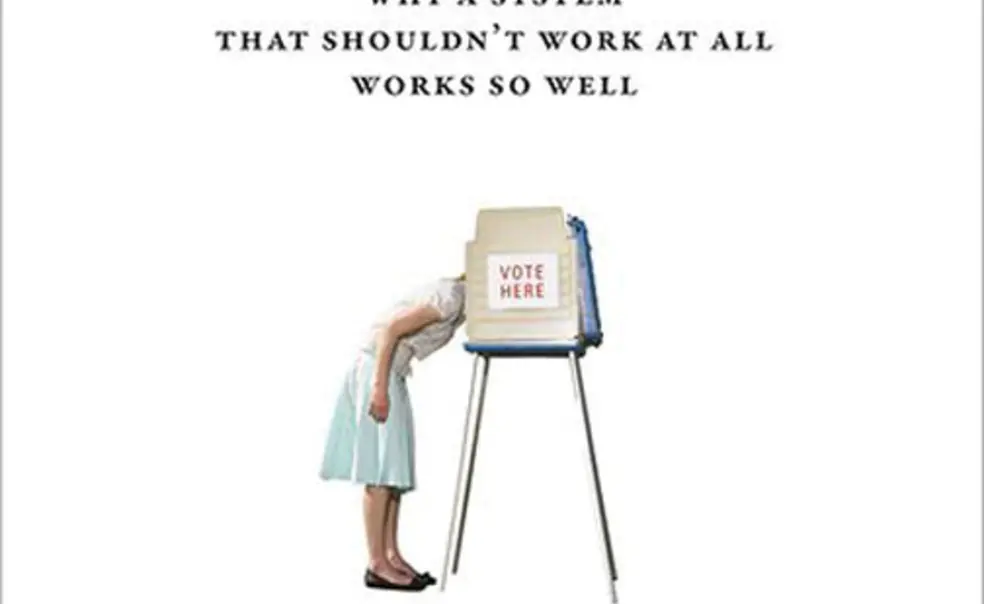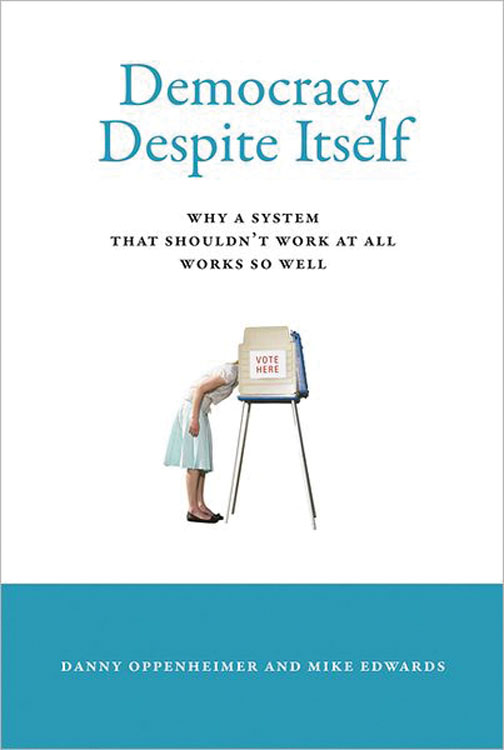While many people are discouraged with the state of politics, Danny Oppenheimer, an associate professor of psychology and public affairs at Princeton, offers an ultimately optimistic view of democracy in Democracy Despite Itself: Why a System That Shouldn’t Work at All Works So Well (MIT Press).
Oppenheimer, whose research examines human decision-making, co-authored the book with Mike Edwards, founder of the political blog Leftfielder.org. They consider a paradox: Democracy shouldn’t work because most voters make decisions that are both irrational and ignorant; but in spite of this, the system not only works well, it is the best system of government available.
By “irrational” and “ignorant,” Oppenheimer does not mean “crazy” and “stupid.” Rather, he means making a decision without considering all of the factors, which he says is impossible to do when voting, given the numerous issues to consider. “There’s just too much to know, so there’s no way people could be anything but ignorant,” he says.
Oppenheimer finds that factors that have little to do with a candidate’s qualifications — such as what a candidate looks like, how tall a candidate is, or how a candidate’s language makes people feel (ranging from whether, for example, a candidate says “death tax” versus “inheritance tax” or uses active versus passive voice) — influence voting because those factors evoke an emotional response. He cites studies and experiments about decision-making that measure the degree to which various factors influence voter behavior from the local to the national level.
Oppenheimer and Edwards explore other weaknesses in the voting process, including the redrawing of electoral districts to favor the incumbent party, an electoral system that can be arcane and confusing, and the fact that it is impossible for leaders to satisfy the varied interests of everyone who voted for them. Still, Oppenheimer argues that democracy works in spite of these flaws and provides greater liberty, peace, and prosperity than any other system.
Unlike governmental systems that suppress dissent, the authors argue, democracies allow citizens the opportunity to “let off steam” through elections. The fact that democracies provide elections gives people confidence in the system and encourages “flawed people and their flawed leaders to continually work toward building a better society,” they write.
They argue that the greater the number of people who are involved in decision-making — voters and lawmakers at all levels — the more likely it is that some of the irrational, uninformed decisions will cancel each other out. The book compares democracy to the board game Clue, where each player has only a small piece of the solution, but by gaining insight from the other players is able to reach the correct conclusion.
The book also offers suggestions for making our flawed system better, including encouraging voters to be as informed as possible, improving the voting process, and — most importantly — getting more people to the polls.
“A lot of people right now are down on democracy and pessimistic about the country,” says Oppenheimer. “And there will be bad times. But democracies have the ability to get out of those bad times.”














No responses yet